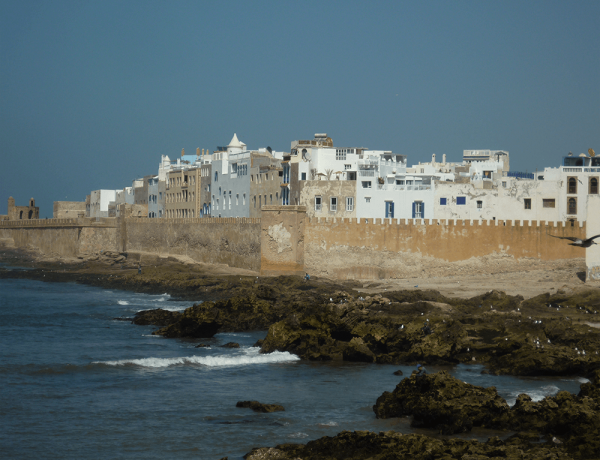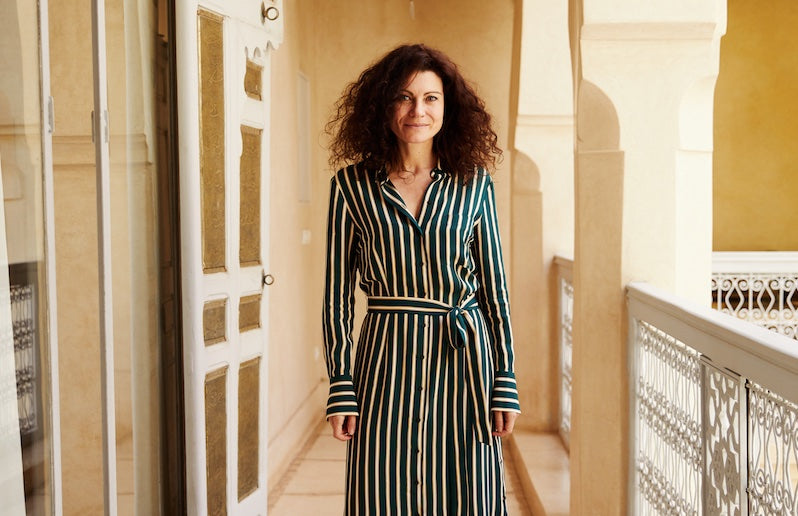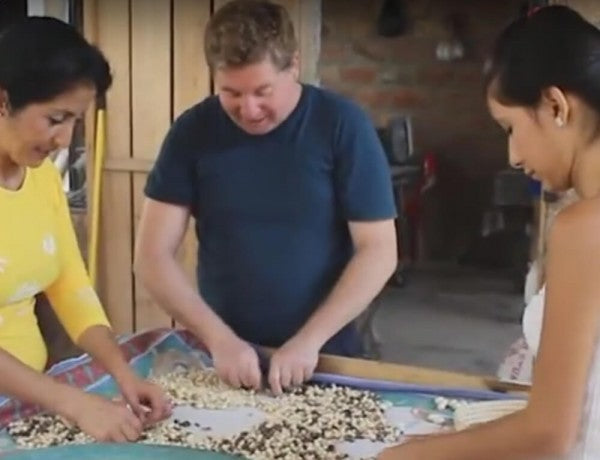Essaouira, die entspannte Küstenstadt an Marokkos windiger Atlantikküste, gelegen in der Essaouira Provinz, wirkt weniger hektisch als das benachbarte Marrakesch, und die überschaubare Medina ist leicht zu navigieren. Wer neben den gängigen Essaouria Sehenswürdigkeiten die Stadt und ihre Kultur wirklich verstehen will, sollte das Leben der Swiris, wie die Einheimischen hier genannt werden, kennenlernen. Was kann man in Essaouira machen, um mit Swiris in Kontakt zu kommen?

1. Bei einer Teestunde plaudern
Soziale Interaktionen in Marokko drehen sich meist um einen heißen, süßen Minztee. Am Nachmittag lohnt sich ein Besuch im kleinen Café Chez Miloud an der Hauptstraße (Ave. Istiqlal, auch als Haddada bekannt). Neben dem Tee gibt es hier frisch zubereitete Msmen (flache, knusprige Pfannkuchen, die mit Schmelzkäse oder Honig bestrichen werden) und Harira (eine vegetarische Suppe aus Hülsenfrüchten, Nudeln, Tomaten und Gewürzen). Die Gäste, oft lokale Händler und Gruppen von Jugendlichen, unterhalten sich zu ägyptischen Filmmelodien.

2. Kunst auf dem Flohmarkt entdecken
Sonntags finden zwei verschiedene Märkte statt. Der Joutiya-Flohmarkt (außerhalb der Medina hinter Bab Doukkala) ist eine besondere Essaouria Sehenswürdigkeit und lockt mit kuriosen Fundstücken und der Gelegenheit, lokale Künstler zu treffen. Diese arbeiten meist im naiven Stil, verwenden Fundstücke und Strandgut und schaffen daraus fantasievolle Werke. Die Ateliers der Künstler Baki und Asmah sind einen Besuch wert.

3. Das ländliche Leben erleben
Für den Besuch des Marktes von Had Draa, ca. 30 km von Essaouiras Altstadt entfernt, ist ein früher Aufbruch erforderlich. Man erreicht ihn mit dem lokalen Bus oder einem Großraumtaxi. Hier gibt es keine touristischen Souvenirs, sondern Obst, Gemüse und Gewürze in Hülle und Fülle, Viehauktionen und handgefertigte Körbe. Ein besonderes Highlight: Der traditionelle Berber-Friseur, der in einem Zelt seine Dienste anbietet, gibt einen authentischen Einblick in das ländliche Leben.

4. Essen bei einer marokkanischen Familie
Die besten marokkanischen Gerichte stammen oft aus der heimischen Küche, denn die Einheimischen essen selten in Essaourias Restaurants.
Was kann man in Essaouria machen um eine möglichst authentische kulinarische Erfahrung zu haben? In "Khadijas Küche" (Khadijas Kuzina) können Gäste an Kochkursen teilnehmen und echte marokkanische Gastfreundschaft erleben. Khadija bereitet traditionell Tajine und Couscous zu, ist aber auch offen für experimentelle Gerichte wie ein glutenfreies Menü. Gäste genießen die Mahlzeiten oft gemeinsam mit ihrem Mann Hussein und ihrem Sohn Yassine.

5. Spektakuläre Sonnenuntergänge bestaunen
Ein Besuch in Essaouira wäre unvollständig ohne den atemberaubenden Sonnenuntergang an der Skala de la Kasbah. Die alte Festung, die die Stadt vor dem Meer und Invasoren schützen sollte, ist ein beliebter Treffpunkt der Einheimischen und eine der bekanntesten Sehenswürdigkeiten in Essaouira. Auch Straßenmusiker treffen sich hier und nutzen die besondere Akustik der Anlage. Der Blick auf den Atlantik und die Bronzegeschütze aus Spanien, den Niederlanden und Portugal machen diesen Ort einzigartig.
Obwohl man in Essaouira Sehenswürdigkeiten bestaunen kann, bietet die Stadt weit mehr: Zahlreiche Gelegenheiten, die herzliche Gastfreundschaft der Marokkaner hautnah zu erleben. Wer sich darauf einlässt, wird nicht nur Freunde gewinnen, sondern auch ein tiefes Verständnis für die Kultur und Lebensweise dieser charmanten Stadt entwickeln.
 © All photos via Lynn Sheppard
© All photos via Lynn Sheppard







Share: